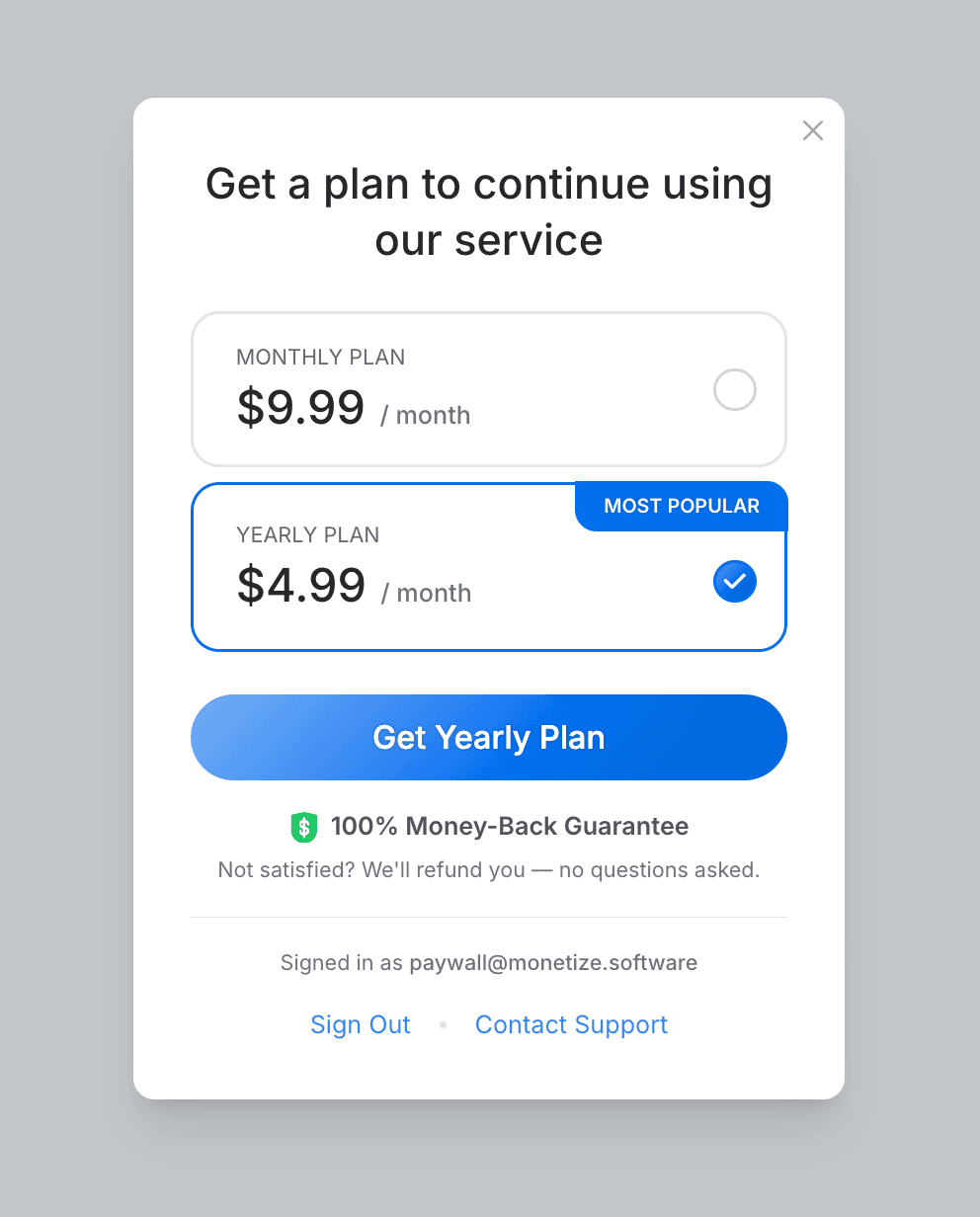Paywall Overview
A paywall serves as an in-app storefront where customers can browse products and make purchases. What sets it apart is its dynamic nature, allowing you to modify it without requiring app updates.
Paywalls provide a seamless way to monetize your application by offering products directly within your app interface.

Paywall States
Understanding the different states of your paywall is crucial for effective management and deployment. Each paywall operates under three distinct state categories:
Payment States
undefined
Test Mode: These paywalls are in testing mode. Use this state while testing your paywall payments until you are ready to switch to live mode.
Always thoroughly test your paywall in test mode before going live to avoid payment issues.
Visibility States
Control when your users can see and interact with your paywalls in real-time.
| State | Description | User Experience |
|---|---|---|
| Visible | Default setting. These paywalls are visible to users. | Users can see and interact with the paywall |
| Hidden | These paywalls are not visible to users. | Paywall is completely hidden from users |
You can edit visibility settings in real time without requiring app updates.
Activity States
Manage the lifecycle of your paywalls through different activity states.
| State | Description | Actions Available |
|---|---|---|
| Active | These paywalls are in the default state when you create or edit them. | Full editing capabilities, can be hidden/shown |
| Archived | These paywalls are no longer in use and have been archived. | Read-only, contact support to restore |
You can restore archived paywalls by contacting the support team.
Key Features
- Dynamic Updates: Modify paywall content without main app updates
- Real-time Control: Change visibility and settings instantly
- Test Environment: Safe testing with Stripe/Paddle test mode
- Flexible States: Multiple state management for different use cases
- Server Mode: Client-side control over paywall appearance while our service provides payment API and webhooks
Next Steps
Now that you understand paywall states, you can: